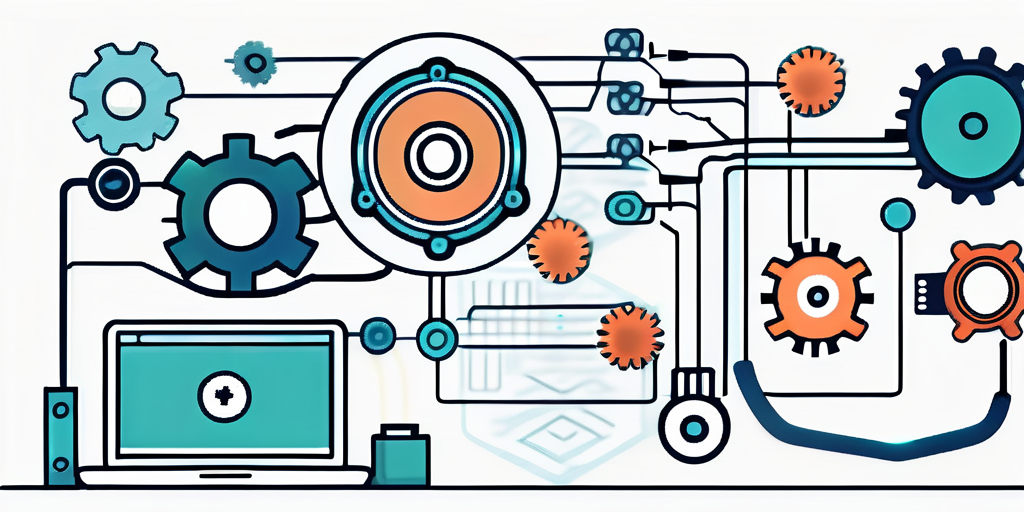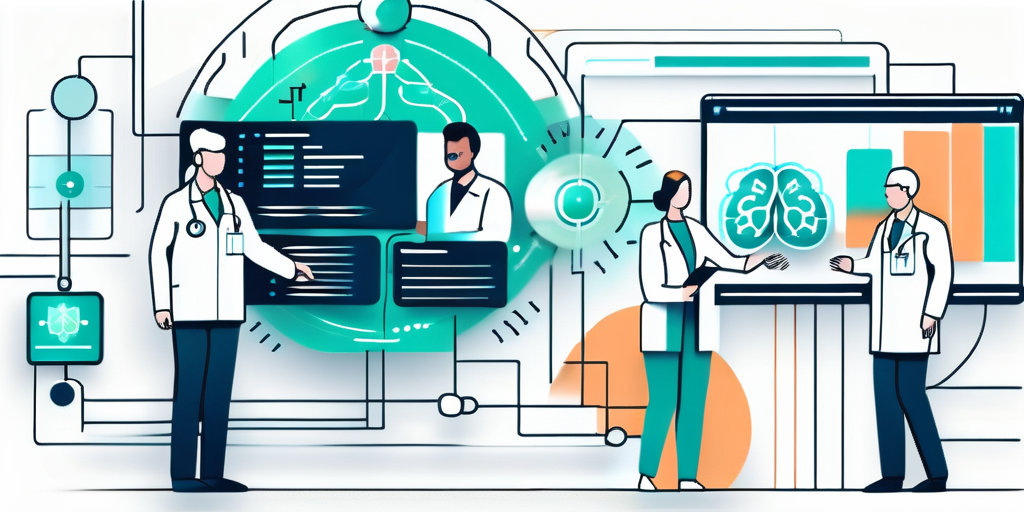In today’s rapidly evolving healthcare landscape, the efficient management of workflows has become paramount. The seamless flow of patient information, coordination of care between healthcare providers, and timely communication are essential for ensuring optimal patient outcomes. However, healthcare workflows are often complex and can be prone to challenges that slow down processes and compromise patient care.
Understanding the complexities of healthcare workflows
Healthcare workflows encompass a wide range of interconnected tasks and processes designed to deliver high-quality care to patients. From appointment scheduling and patient registration to diagnosis, treatment, and follow-up, workflows involve multiple stakeholders, including physicians, nurses, administrators, and support staff. These workflows are guided by established protocols, regulations, and best practices to ensure safe and effective care delivery.
The role of healthcare workflows in patient care
The smooth functioning of healthcare workflows is crucial for enhancing patient care. Well-designed workflows ensure that all necessary steps are followed in a systematic manner, reducing the likelihood of errors and improving patient safety. They also facilitate efficient resource utilization, enabling healthcare providers to optimize their time and provide prompt and appropriate care to patients.
Identifying common challenges in healthcare workflows
Despite the best intentions, healthcare workflows are often riddled with challenges that impede efficiency and hinder the delivery of quality care. One of the key challenges is the lack of interoperability between different healthcare information systems. This leads to fragmented data and delays in accessing essential patient information, hampering care coordination.
Moreover, the complexity of healthcare workflows can sometimes result in miscommunication and confusion among healthcare professionals. With multiple stakeholders involved, ensuring effective collaboration and clear communication becomes paramount. This challenge is further exacerbated by the fast-paced nature of healthcare environments, where time is of the essence and quick decision-making is crucial.
Another significant challenge is manual and paper-based processes, which are time-consuming, error-prone, and hinder workflow efficiency. Additionally, the sheer volume of administrative tasks can overwhelm healthcare providers, taking away valuable time that could be spent on direct patient care.
The transformative potential of artificial intelligence in healthcare
Artificial intelligence (AI) has emerged as a powerful tool in overcoming the challenges faced by healthcare workflows. AI technologies, such as machine learning and natural language processing, have the potential to revolutionize care delivery and improve patient outcomes.
Artificial intelligence in healthcare is not just a technological advancement; it represents a paradigm shift in how healthcare is delivered and managed. The ability of AI to process and interpret vast amounts of data in real-time allows healthcare providers to make more informed decisions, leading to better patient care and outcomes. By leveraging AI, healthcare organisations can move towards a more proactive and personalised approach to healthcare, focusing on prevention rather than just treatment.
How AI is reshaping healthcare delivery
AI enables healthcare providers to automate time-consuming tasks and streamline workflows. For example, AI-powered chatbots can handle patient inquiries, appointment scheduling, and basic triage, freeing up staff to focus on more complex patient cases. Machine learning algorithms can analyze vast amounts of patient data to identify patterns and predict disease progression, aiding in early detection and personalized treatment planning.
Furthermore, AI has the potential to enhance remote patient monitoring and telemedicine services, allowing for continuous and proactive healthcare management. By analysing data from wearable devices and sensors, AI can provide real-time insights into a patient’s health status, enabling timely interventions and reducing the need for hospital admissions.
The intersection of AI and healthcare workflows
AI can seamlessly integrate with existing healthcare workflows, enhancing their efficiency and effectiveness. By automating routine tasks, AI reduces the administrative burden on healthcare providers, allowing them to devote more time to direct patient care. AI algorithms can also analyze workflows to identify bottlenecks and suggest improvements, optimizing resource allocation and streamlining processes.
Moreover, the implementation of AI in healthcare workflows can lead to cost savings and improved resource management. By predicting patient admissions, optimising staff schedules, and reducing medication errors through AI-powered systems, healthcare providers can operate more efficiently and effectively. This not only benefits the healthcare organisation but also translates to better quality of care for patients.
Implementing AI solutions to improve healthcare workflows
The successful integration of AI into healthcare workflows requires careful planning and consideration. Healthcare organizations must evaluate their specific needs and select AI solutions that align with their goals and objectives. According to recent surveys, 73% of healthcare executives believe that AI implementation will have a significant impact on their organization’s efficiency and outcomes.
Integrating AI into healthcare workflows can revolutionize the way medical professionals deliver care to patients. By harnessing the power of artificial intelligence, healthcare providers can streamline administrative tasks, enhance diagnostic accuracy, and improve treatment planning. The potential benefits of AI in healthcare are vast, ranging from reducing medical errors to enabling personalised medicine tailored to individual patients’ needs.
Key considerations for integrating AI in healthcare settings
When implementing AI in healthcare workflows, data security and privacy must be of utmost concern. Robust safeguards should be in place to protect sensitive patient information. Additionally, healthcare providers need to ensure that AI algorithms are transparent, explainable, and trustworthy, to gain the confidence of both healthcare professionals and patients.
Furthermore, the ethical implications of AI in healthcare cannot be overlooked. As AI systems make decisions that directly impact patient care, it is essential to establish ethical guidelines and frameworks to govern their use. Healthcare organisations must navigate complex ethical dilemmas, such as ensuring fairness and equity in AI algorithms and addressing potential biases that may arise in data-driven decision-making processes.
Measuring the impact of AI on healthcare workflow efficiency
The introduction of AI into healthcare workflows offers an opportunity for continuous improvement. Healthcare organizations should define measurable outcomes and regularly evaluate the impact of AI solutions on workflow efficiency and patient outcomes. By monitoring key performance indicators, such as reduced turnaround times and improved patient satisfaction scores, organizations can identify areas for further optimization and maximize the benefits of AI implementation.
Moreover, the integration of AI in healthcare presents a paradigm shift in how healthcare professionals interact with technology. Training and upskilling staff to effectively utilise AI tools and interpret algorithmic outputs are crucial steps in ensuring successful adoption and integration of AI into existing healthcare workflows. Continuous education and professional development programmes can empower healthcare professionals to leverage AI capabilities to their full potential, ultimately enhancing patient care and driving positive health outcomes.
Future perspectives: AI’s role in the evolution of healthcare workflows
The future of AI in healthcare workflows holds tremendous promise for further advancements in care delivery and patient outcomes. As AI technologies continue to evolve, we can anticipate even greater levels of automation, accuracy, and efficiency in healthcare workflows.
Predicting the future of AI in healthcare
Experts predict that AI will play an increasingly significant role in areas such as clinical decision support, robotic process automation, and predictive analytics. These advancements have the potential to revolutionize healthcare workflows, enabling more targeted and personalized care, reducing medical errors, and improving overall healthcare system efficiency.
The long-term benefits of AI-enhanced healthcare workflows
Looking ahead, AI-enhanced healthcare workflows hold the promise of a healthcare system that is more patient-centric, efficient, and cost-effective. By automating routine tasks and providing real-time insights, AI solutions enable healthcare providers to deliver timely, proactive, and personalized care to patients. Furthermore, AI-driven predictive analytics can facilitate early intervention and preventive measures, resulting in improved patient outcomes and reduced healthcare costs in the long run.
As we embark on this transformative journey, it is crucial for healthcare organizations to stay informed about the latest developments in AI and healthcare workflows. By embracing AI technologies and collaborating with digital marketing agencies focused on healthcare marketing, healthcare providers can leverage the power of AI to overcome workflow challenges and revolutionize care delivery.
One area where AI has shown great potential is in medical imaging. With the help of AI algorithms, healthcare professionals can now analyze medical images with greater precision and efficiency. This has significant implications for early detection and diagnosis of diseases such as cancer. By accurately identifying abnormalities in medical images, AI can assist doctors in making more informed decisions and developing personalized treatment plans for patients.
Additionally, AI has the ability to enhance patient monitoring and remote care. Through wearable devices and smart sensors, AI can continuously collect and analyze patient data, providing real-time insights to healthcare providers. This enables early detection of any changes in a patient’s condition, allowing for timely interventions and preventing potential complications. Moreover, AI-powered chatbots and virtual assistants can offer patients personalized support and guidance, improving their overall healthcare experience.
Embrace the future of healthcare with Clinic Marketing AI. With a deep understanding of the intersection between healthcare, marketing, and AI, Angelo Rosati and his team are dedicated to propelling your clinic forward. We’re not just a service provider; we’re your partner in growth, committed to delivering excellence in every aspect. If you’re ready to enhance patient care, streamline workflows, and unlock the full potential of AI in your practice, Book a Call with Us today and take the first step towards a more efficient, patient-centric healthcare system.




